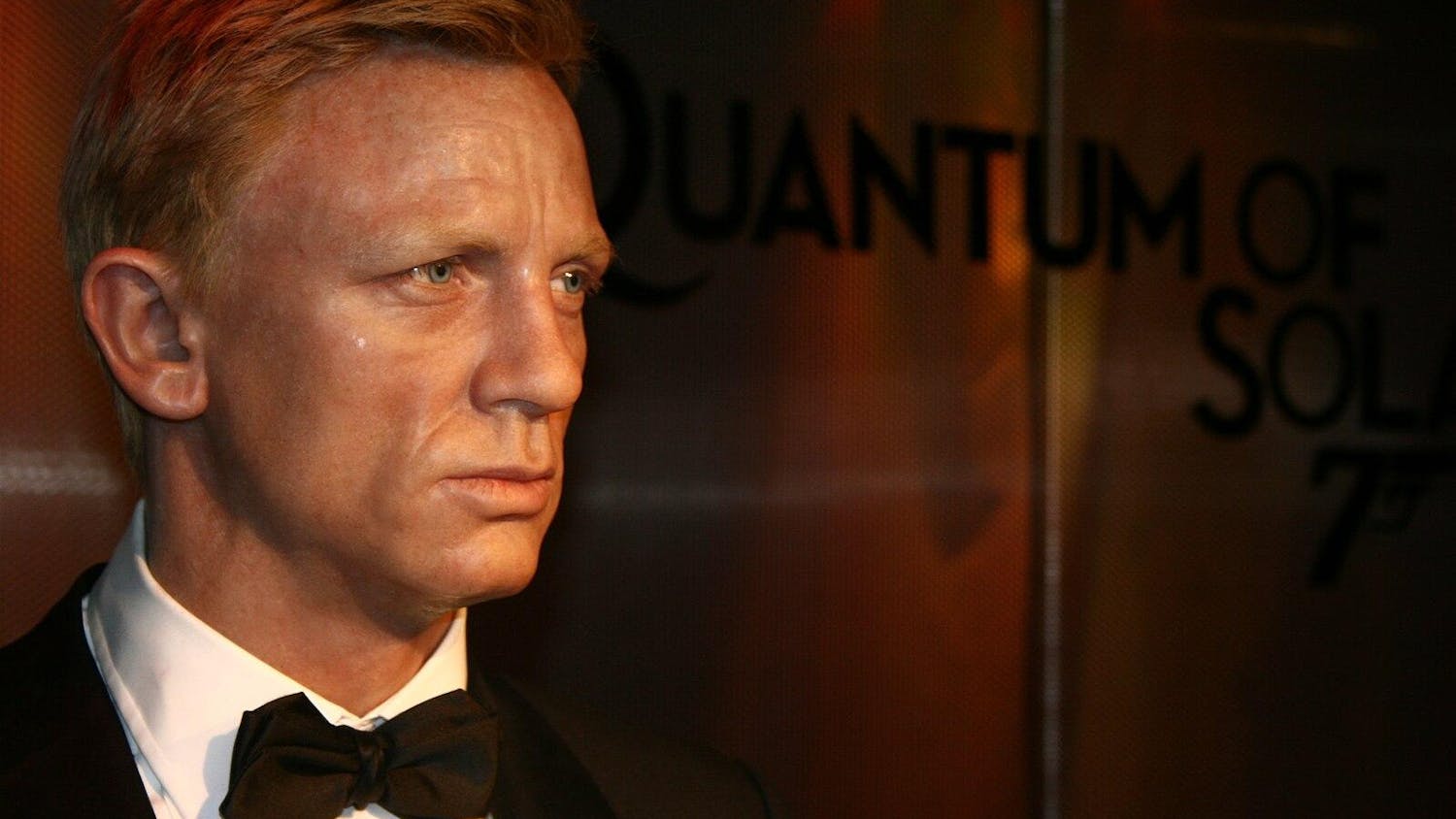In displaying the works of so many artists who live in the Boston area, common themes are bound to be addressed. With each artist, however, comes a unique story and perspective.
The artists in the latest installment of the ongoing thesis exhibition series at the Tufts galleries take full advantage of their designated space, and even exceed it: much of their artwork spreads from the floor to the walls and ceiling, in a variety of mediums.
Lior Neiger originally came to the Museum School program from Israel to paint. However, for the past two and a half years he has immersed himself in a new language, and has found that his artwork has shifted as well. Lior learned to "talk" computer, and began to explore themes in technology and the metaphorical relationship it has with society.
Neiger presents paintings, video and photographs in what he has termed "Constellation Art." Works in each medium stand on their own, but they have obvious connections in color, form and content.
His video, "Dead Pixels," explores the disturbing connection between technological viruses and real-life epidemics, with many other subtexts at work. He takes the typical landscape desktop image and, over the course of his video, morphs it into a rotating globe. The number of AIDS victims over the past year appears over each continent, numbers which Neiger must continually update. Text in html runs across the screen with alerts like "virus suspected," and continues on with the more complacent "your monitor is working correctly."
The display has a grace and balance that is hard to find in modern artwork. Although it has a definite resonance and triggers thought on social patterns and injustices, the exhibit does not overpower or attempt to shock you.
Leah Bedrosian looks at the interplay between fiction and reality. She has designed an artificially Armenian dating website (Armeniandate.net), complete with photos and profiles of each site member. Accompanying the cyber component of her work are large photographs that display each member in their day-to-day environment. There is, of course, a disparity between their profiles and their images.
"I am working towards one day becoming President of the United States. I work really hard and am a dedicated and motivated person," reads the description of one cyber member, Future President, an "Armenian by association." His photographed image is not of a man hard at work, but instead, of a disheveled young blond man in a shirt and loosened tie, drinking Carlo Rossi.
Bedrosian's photographs are very large, and have an evident fictive quality to them, as items are strategically placed to tell a story and characters are often portrayed in a satirical light.
Juniper Perlis explores fantasy and reality in a different vein. She joined the Masters program two and a half years ago with the knowledge that her father had a house in Somerville. Although she hadn't seen him in 20 years, while studying at the Museum School Perlis became obsessed with searching for him, and her art explores her emotions about the search.
Her work is inspired by the outside of his two houses, the one in Somerville and the one he lives at in Newfoundland, both of which she visited many times without her father knowing. With the opening of the exhibit approaching, she wrote to her father and invited him to come see it, telling him what she'd been doing for the past few years.
"A part of it is my inability to distinguish between reality and fantasy," said Perlis of her work. Her voyeuristic approach seems to have prolonged this confusion.
Another pseudo-spy is Gina Dawson, whose work, "Movie Star Homes," looks at the lure of celebrities and their personal estates. She has stitched a map of Hollywood and the homes of the stars, her research drawn from hours upon hours of television footage from their mansions.
Hilary Baldwin's work consists of an array of many objects, some real, some false. For example, a string of lights appears to hang from the ceiling; in reality they are just decoration pieces used by storefronts.
"Many of these objects are icons from city life. They show the reality and falseness of the urban landscape," said Baldwin.
Also showing their thesis work this month are Nicole Arendt, Yvonne Boogaerts, Amy Finkelstein, Aimee LaPorte, Evelyn Rydz, Erin M. Sadler and Tim Saltarelli.
Viewing the work of these 12 artists provides a rather comprehensive look at themes that are being explored in modern art today. All artists are part of the Joint Graduate Degree Program of Tufts University and SMFA, Boston. The exhibit opens today, and the artists will be present at the opening reception held on Thursday from 5:30 to 8:30 p.m.





